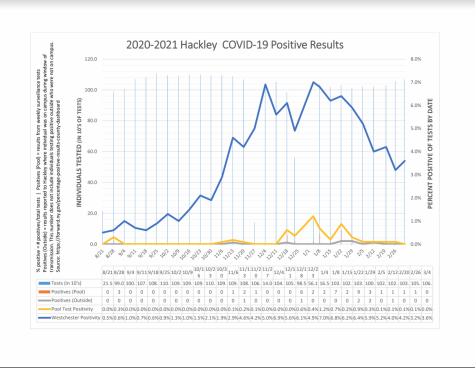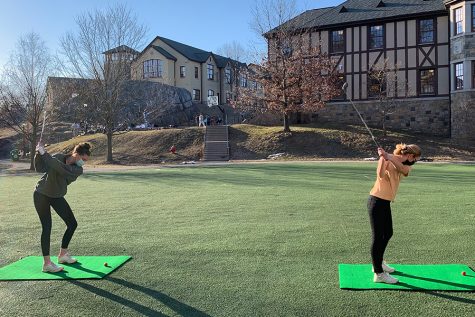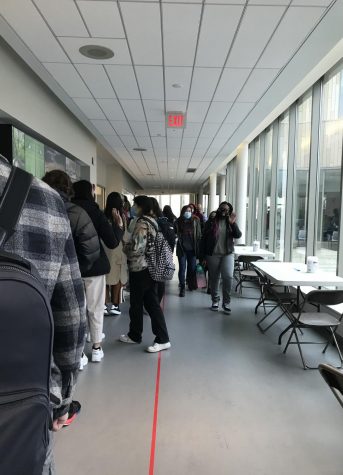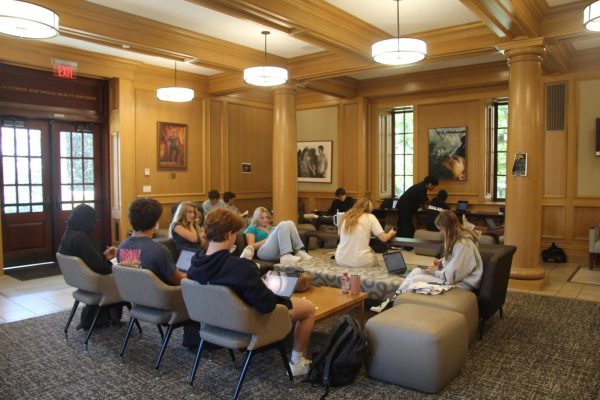Reactions to Anti-Asian Violence
Credit: Hadley Chapman
According to NBC News, Anti-Asian hate crimes increased by nearly 150% in 2020, mostly in NY and LA. These crimes have been horrific, mostly involving racial slurs and violent attacks. There was also a terrible shooting in Atlanta, Georgia which left eight people dead, six of whom were women of Asian descent. While these instances of hate crimes have contributed to widespread fear about safety among some members of the Asian community, it has also led to an increased condemnation of anti-Asian violence and increased efforts to help combat these acts of hate.
These events have been extremely upsetting and caused much grief, especially to members of the Asian community who now fear for their safety in public.
“For example, both of my grandmas [have] got[ten] the vaccine, but because they’ve heard about what’s going on, they don’t really want to go out and see their friends. They’re afraid that something’s going to happen to them,” freshman Allison Chin said.
Additionally, there have been conversations shared by major news organizations such as CNN, the New York Times, the Washington Post, etc regarding potential factors that contributed to this terrible increase in anti-Asian violence within the past few months. The rhetoric around the pandemic and its origins such as former President Trump’s use of the phrase “Chinese virus” are huge factors that many agree have led to increased anti-Asian sentiments.
These acts of hate were initially publicized through social media and later by news stations as the events became more frequent and more horrific, most notably around the time of the shooting in Atlanta. The lack of media coverage of anti-Asian hate crimes was heavily criticized, as many people were initially completely unaware of these occurrences.
Junior Daniel Cai emphasized the news’s need to spread awareness, “I would much rather [that] mainstream news pick up on this and do more [of an] in-depth analysis of the situations and do their duty to educate the public.” Widespread awareness of issues such as anti-Asian violence is critical to help generate public support for new policies to ensure the safety of Asian Americans.
Regarding potential causes, Allison Chin said, “I think it’s a mixture of a lot of fear and also discrimination. The pandemic is scary for everyone and then a lot of the time people just want something to point their fingers at, to have something to blame”.
Unfortunately, many people who are frustrated with the economic and emotional hardships of the pandemic have turned towards hatred and bigotry and are using this pandemic as an excuse to act on their pre-existing anti-Asian beliefs.
Allison also said, “And I guess sometimes some people choose to blame Asian Americans, even though we had nothing to do with it. [Also] people in power would use harmful rhetoric that didn’t help deter those sentiments.”
Unfortunately, these anti-Asian sentiments are not new. “In America especially, there’s a pretty long history of [Anti-Asian racism]. So it’s been around for a long time in our country,” said junior Iheukwumere Marcus.
Because of the longstanding nature of these sentiments, the solutions to these issues won’t be quick fixes. However, many are rallying to spread awareness about issues that affect the Asian American community such as lack of representation in positions of power, occupational and educational disparities, etc. In a Gallup Poll, 30-31% of AAPIs surveyed reported incidents of employment discrimination, the largest of any group, with African Americans constituting the second-largest at 26%.
Marcus pointed to some current initiatives geared towards helping combat anti-Asian hate, “There’s a lot that can be done. It’s important to make the people in these communities feel safe. So that may mean increased policing in certain areas, some awareness campaigns, etc. There are a lot of groups that you can donate to and [also] volunteer your time [to].” Some of these examples include the Asian American Feminist Collective, CAAAV, and Stop AAPI hate.
Hopefully, through concerted and collaborative efforts, more solutions can be found to enact real change to make this country a better, more equitable, and inclusive place for Asian Americans.

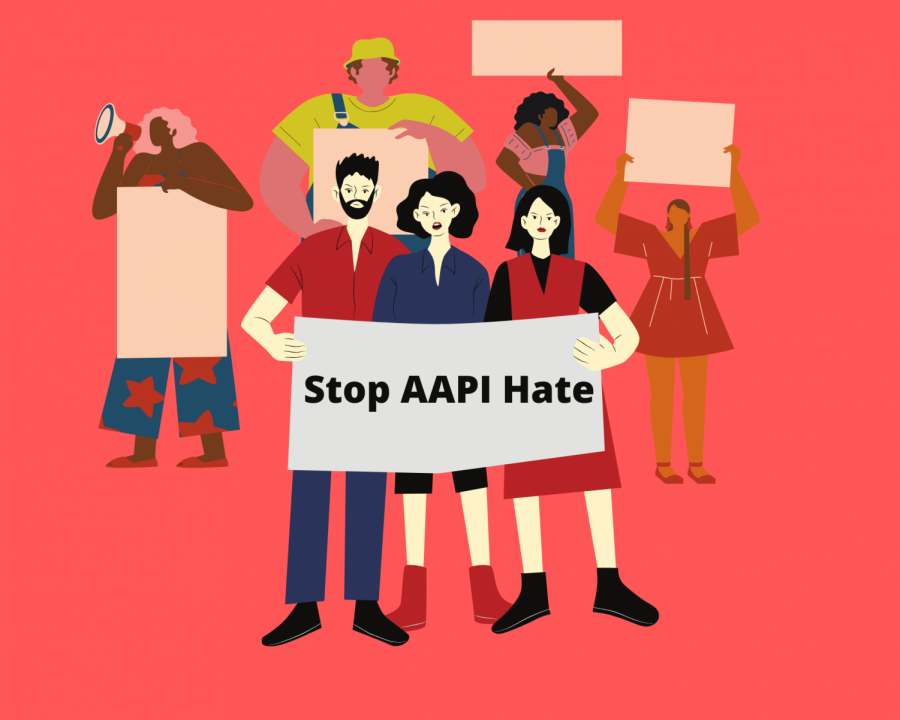

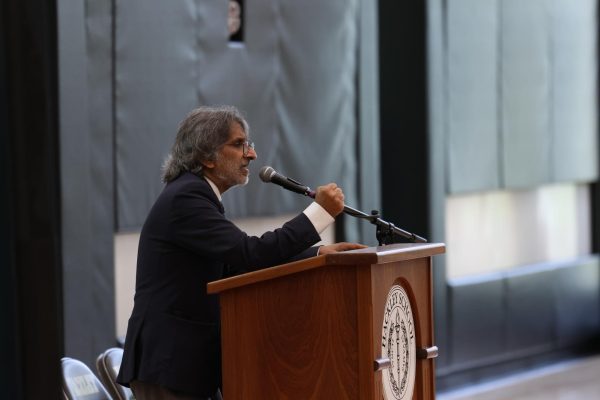

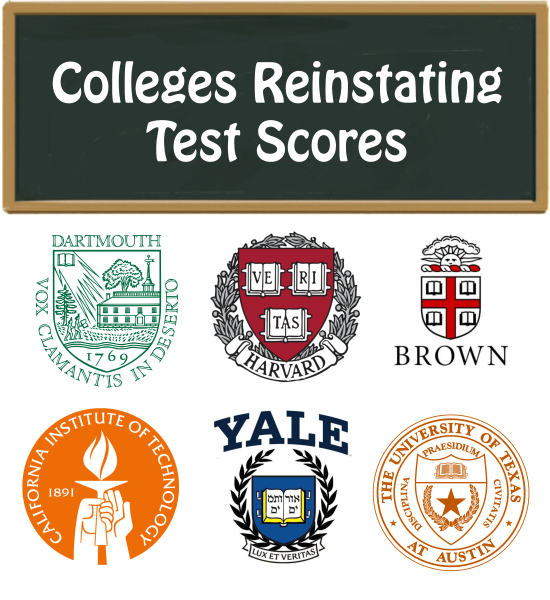
![Although the affect of COVID-19 has been on a decline with less cases and deaths allowing most of us to remain mask free, people on the Hilltop are still choosing to mask up. Personal health concerns as well as helping an elderly neighbor are reasons as to why middle school science teacher Emma Olsen still wears a mask years after the COVID-19 pandemic began. Since I am helping take care of him, you know I go over to work with his dogs, that kind of thing; I dont want to bring [the virus] home to him, Ms. Olsen said.](https://hsdial.org/wp-content/uploads/2024/03/IMG_1713-450x600.jpg)

